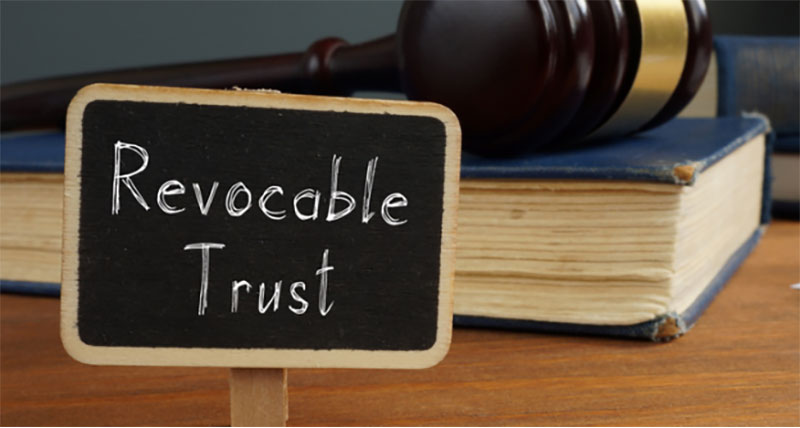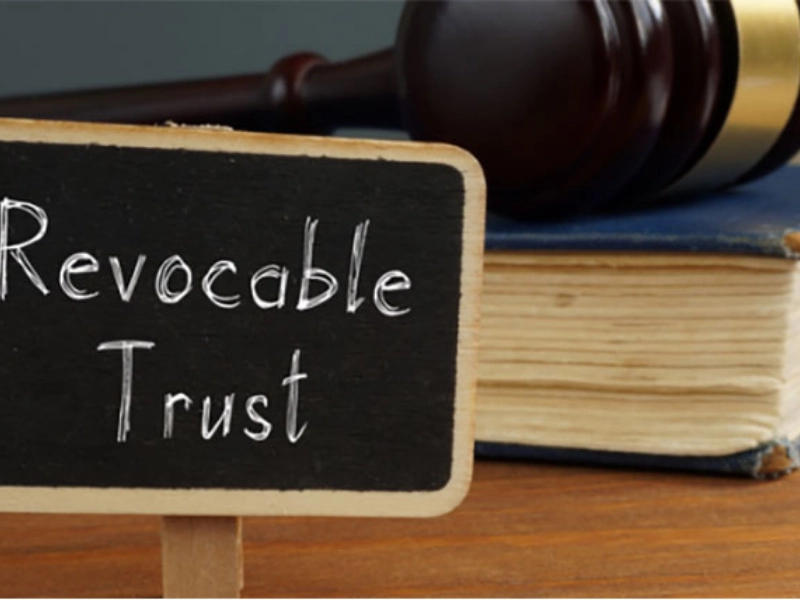All About Recoverable Living Trust
A Revocable Living Trust is a legal agreement that governs the Trust's assets for as long as the Grantor (the person establishing the Trust) is still alive. It cannot serve its purpose until assets are transferred into the Trust. On the other hand, a testamentary trust is included in a person's last Will and takes effect only after the Testator's (the person who drafted the Will) death. This contrasts with the Revocable Living Trust, which takes effect immediately.
In a Revocable Living Trust, the Grantor has complete discretion over whether and how to change or terminate the Trust and whether or not to reacquire the Trust's assets. In contrast to an Irrevocable Trust, which cannot be changed or terminated by the Grantor, this Trust can.
As long as another person or persons also possess a beneficial interest, it is now legal for a single individual to serve in both capacities in New York. The other party's beneficial interest may be immediate or delayed in time. Unless otherwise specified, a lifetime trust is presumed to be irreversible.
The trust creator is the individual who establishes the Trust. You'll also come across a grantor and a trustor. These three terms describe the same individual. In most cases, the person who creates a revocable living trust will also be a trustee. The trustee manages the Trust's administrative tasks, such as keeping financial records and filing tax returns. It would help if you appointed a successor trustee in the trust documents. After your death, this individual will be responsible for administering the Trust. Finally, beneficiaries are a key concept to understand. After your death, these individuals, groups, or legal entities will receive distributions from your Trust.
Methods for Establishing a Living Trust

If a revocable living trust is something you're considering, you should be ready. Most of the legwork must be done upfront so your estate can be distributed smoothly later. To get started, it's a good idea to count your possessions. The next step is to consider your potential trustees and the beneficiaries of your estate. After the trust agreement is drafted, the assets to be protected can be added to it.
In other cases, merely cataloguing the asset is sufficient. For the rest, you must contact financial institutions, insurance providers, and transfer agents to change beneficiaries, issue replacement investment certificates, retitle vehicles, and sign replacement deeds. It would help if you also created a "pour-over" to transfer property into your Trust that has not yet been designated.
How Does A Revocable Trust Work?
During their lifetime, a grantor (the person who creates the Trust) can use a legal document called a "revocable trust" to transfer ownership of their assets to the Trust.
The benefits of a trust are maximized when as many assets as possible are transferred into it. Still, some assets, including life insurance and Individual Retirement Accounts (IRAs), cannot be transferred. While the Grantor is alive, the Trust manages the assets, and upon the Grantor's death, the Trust pays out to the beneficiaries. During the Grantor's lifetime, the trustee of a living revocable trust manages the trust assets for the benefit of the Grantor.
Most grantors will choose to act as trustees to keep full control over the Trust's assets. A successor trustee is designated to take over the administration of the revocable Trust and distribution of assets upon the death of the Grantor.
The Grantor of a revocable living trust has the legal authority to alter the terms of the Trust at any time after its creation and even to terminate the Trust entirely. Once established, an irrevocable living trust cannot be changed, providing less flexibility.
Perks of Recoverable Living Trust

The following advantages can be gained by using a Revocable Living Trust instead of a last will for estate planning purposes:
- Saves money and time by avoiding the expense and inconvenience of probate (including court costs, attorney fees, guardian ad litem fees, and executor's commissions; nevertheless, trustees will still be compensated for their services);
- Assists in warding off challenges to the validity of a last will based on questions of the Testator's mental capacity. Despite the higher standard of competency required to execute a revocable trust (e.g., capacity to make a contract), attacks based on lack of due execution are exceedingly rare.
- A Revocable Living Trust safeguards Grantor's confidentiality, C. Unlike a Will, the terms of this document are not open to scrutiny by the general public;
- Upon the Grantor's death, the Trust's assets will be immediately distributable so long as the necessary funds are set aside to cover inheritance taxes.
- Transferring assets to the Trust does not result in a taxable gift.
- Continuing Trust Asset Management if Grantor or Beneficiary becomes Disabled.









